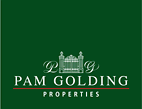Drakenstein: must be a true place of opportunity
2006-06-08
DRAKENSTEIN must become the true place of opportunity for all to live, work and play, said Charmaine Manuel, Executive Mayor of Drakenstein, presenting the sixth annual budget of the Drakenstein Municipality for the 2006/2007 financial year.
“With this budget we want to ensure that the municipality meets the needs of our communities and fulfills its developmental role.
“An annual budget is generally divided into a capital and an operational budget in accordance with legislation.
“Our operational expenditure for 2006/2007 is R616,1 million, of which 32% goes to salaries and wages, 24% is spent on bulk purchases, 8% is spent on repairs and maintenance, and 12% is spent on capital charges.
“Expenditure on salaries is only 33%, which is within the norm.
“Specifically extra money has been set aside for the Ward Committees, for specific posts in Departments crucial for service delivery and a number of additional Departmental requests.
“The growth of expenditure is within the guidelines growth parameters set by National Treasury. The increase of expenditure from 2005/2006 to 2006/2007 will be 7,20%.
“Broken down, the tariff increases are the following: electricity 5,4%, sewerage 4,0%, refuse 4,0% and water 9%.
“I would particularly like to mention here that we are proposing to bring parity in tariffs between farmers inside and outside of town, ie a figure of 0,00272%. Beyond that we propose that also for parity reasons to cancel the tariffs for back yard structures in Wellington and Paarl which did not change.”
Speaking on free basic services, the Mayor mentioned the indigent grant received from Province.
“All households where the combined income was below R1640 per month, qualify for a rebate of R85 per month on municipal services such as refuse removal and sewerage. In total 13 000 households in Drakenstein will benefit financially in this manner. All in all, with the grant from Province, this amounts to slightly more than R13 million.
“Furthermore, there is also discount for pensioners on property tax (to the value of R109 000), net free water for every household (nearly R5 million), free electricity for each household (just more than R2,6 million), rebates for properties with a value below R50 000 (more than R2,6 million), as well as the removal of refuse from skip bins (more than R1,6 million). The free services that Drakenstein renders amount to a total of nearly R25 million.
Going on to the capital budget, she said the consolidated three year capital budget is R131,5 million for 2006/2007, R83,1 million for 2007/2008 and R89,9 million for 2008/2009.
“It is financed from the following sources:
* Financing from own sources - our yearly capital spending will be R105,9 million for 2006/2007, R48,1 million for 2007/2008 and R50,2 million for 2008/2009.
* Financing out of grants or other funds - the budget also makes provision for capital projects financed from grants and other funds.
These projects are budgeted as ad hoc projects and amount to R25,5 million for 2006/2007, R35,1 million for 2007/2008 and R39,7 million for 2008/2009.”
Speaking on the original timeframe for facing in of tariffs, she said property rates were fased in all at once with the last general valuation.
That meant vast increasements for Paarl (between 30% and 40%), while Wellington increased between 2% and 10%.
The fasing of the standardised water tariffs was a 5-year process starting in July 2001 and should have concluded on 1 July this year.
Taking the recent water restrictions into account, these tariffs were brought on par in January 2006 already, instead of lowering tariffs. That was also the case for Saron and Gouda.
Electricity tariffs should have been on par on 1 July this year.
However, the mayoral committee decided two years ago to postpone this with a year.
Saron and Gouda receive their electricity directly from Escom. Only Wellington’s prepaid is not yet on par with the rest of the region.
Sewerage is on the same level for Wellington, Saron and Gouda and refuse remocal will be on par from 1 July with reference to the new 240 litre wheelbin.
“We have four different categories for rates and taxes on property, ie homeowners, businesses, agriculture and industries.
“For the 2006/2007 financial year we have budgeted for an increase of 4% in tax income.
“I would like to give an example to explain the raising of tax on properties. Let’s assume the average increase in valuation of property for one of these four groups is 70%, then the municipality lowers that specific group’s present tariff by 70%. Thereafter we add the 4% increase for tax purposes.
“However, the question may arise: What happens to those properties of which the valuation deviates from the average increase in valuation?
“Well, all properties of which the new valuation is either higher or less than the average, eg 70% for that specific group, will receive an increase a little higher or a little lower than 4%.”
The practical implications in Rand and cents regarding the tariff increase for a big house (+-317 m? improvement) is R122,86 more per month. For a small house (+-58 m² improvement) the increase per month amounts to R30,14 per month.
The monetary implications for the new monthly account for a small and big household are illustrated.
The Mayor refered to the opinion of economists that South Africa is experiencing a golden era.
“We are now benefiting from years of responsible fiscal policy and structural reform.
“All of us, the Council of Drakenstein as well as business people, must define goals that are within reach. If we work together, I promise you that we can, during the next five years, experience a time of hope, as well as promise and fulfillment.
“In this context I hope that the business people of Drakenstein will contribute to lift our community from the poverty in which so many live.”
More
News
|


